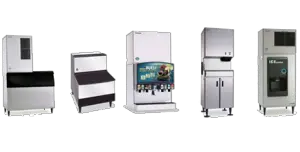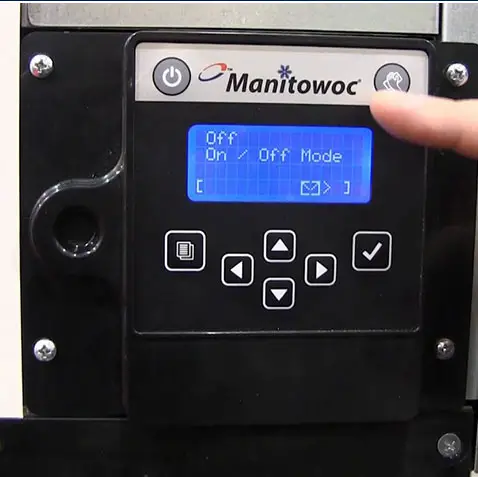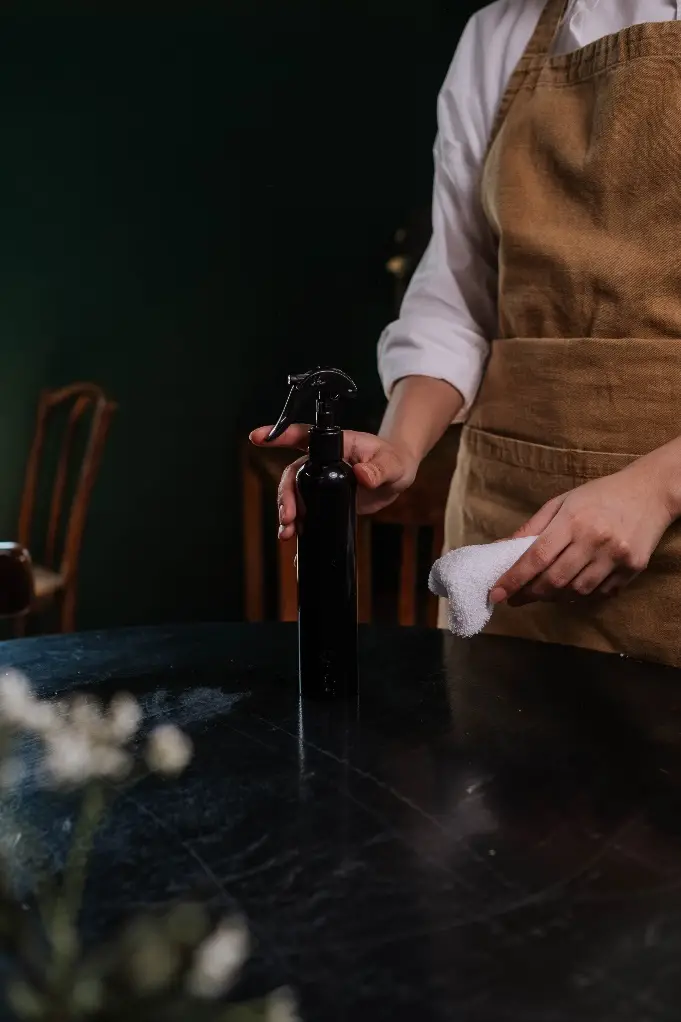Whether you work alone, with coworkers, or in a large office building, there's probably an ice maker. Ice machines are as a big part of an office environment as a water cooler, even though the latter sometimes gets all the glory in jokes and metaphors. There are many types—countertop machines to massive commercial ice makers that provide ice for the entire building.
Office ice dispensers are a common fixture of daily office life for workers who want to chill their drinks. Knowing how the ice machine is serviced, who does it, and how frequently and what to anticipate to adhere to the workplace kitchen guidelines are less widely known.
Ice Makers Can Spread Bacteria If Not Cleaned Properly
The COVID-19 pandemic has increased peoples' aversion to germs. Sadly, the ice machine is frequently disregarded as a source of bacterial propagation. Thankfully, there are many things workers can do to ensure that the ice machine is secure for everybody. This post will further discuss the best procedures for routine ice dispenser cleaning.
Everybody is concerned about the transmission of diseases and germs. Some general office rules and guidelines need to be practiced to make workers feel safer at work. It's advised to regularly clean the ice maker or set a schedule for doing so that the staff members are aware of the company's efforts to prevent the spread of bacteria. The frequency of ice maker maintenance between expert cleanings is suggested below.
Safety Rules
The following guidelines ought to be displayed close to each ice and beverage dispenser. Abide by the following guidelines while using a machine for everybody's safety:
- Clean and sterilize your hands before and after using this machine.
- If you want to avoid refills, use a new cup or clean your current one.
- No foreign items like coffee or juice should be placed on the tray. Don't even pour those drinks down the sink. Only machine-produced ice and water needs to go down the drain.
When You're Near The Ice Bin
The rules and restrictions differ for office ice makers where ice is obtained with a scoop. There's a higher risk of contamination when each staff member must lift the bin lid and utilize the same utensil to collect ice for beverages.
Ice dispensers make the ideal home for microorganisms. Bacteria thrive in conditions that are damp and gloomy. By adhering to the guidelines below, all employees (and businesses in shared facilities) can significantly lessen the spread of germs on the ice. The wrong use of ice maker accessories is one of the main ways germs contaminate ice and enter the ice bin.
People may contract illnesses from contaminated ice. There's a chance that mold or slime biofilm can develop on the ice if it's not cleaned properly. Compliance with the rules can be facilitated by explaining the risks to everybody who uses the commercial ice producer.
The following guidelines should be posted next to or on the ice machine. Also, provide access to the required scoopers and handles.
DO:
- Clean your hands properly or sanitize them before grabbing ice from the container.
- When the ice scoop isn't being used, you can keep it outside the ice maker. It needs to be kept in a holder or placed on a hanger.
- Wear masks and gloves while you take the ice out of the container.
DON'T
- You can't eat or drink while removing ice from the commercial ice machine.
- Never use anything besides the scoop to take out the ice. Avoid dipping your hands, glasses, or mugs into the ice. They could contain germs that can contaminate the entire ice bin.
Cleaning Ice Machines
Thorough and routine cleaning of ice makers is necessary to make safe, hygienic ice. Deep and rigorous cleaning needs to be done yearly. If your organization uses ice often, then bi-annual interior and exterior cleaning need to be done.
An ice machine expert will reach the interior of the ice producer and bin during extensive cleaning to completely sanitize all ice-making parts. These checkups should also include servicing the ice maker (repairing water filters, etc.). The manufacturers of ice machines advise at least two thorough cleanings per year.
Ice dispensers also require routine cleaning, which janitors or even office workers can complete. Routine maintenance is essential to eliminate bacteria from areas that are often touched during everyday use.
The amount of use the machine gets determines how frequently it needs a routine cleaning, which includes sanitizing and washing surfaces. Although, you can follow the advice provided below as an excellent starting point and add more thorough maintenance as required.
Cleaning Agents
EPA-approved cleaning solutions or food-safe detergent should be used for routine cleaning. Since ice is regarded as food, choosing the proper cleaning is crucial. Ensure the staff uses the appropriate product when cleaning the ice maker because a multifunctional cleaner will not work.
Cleaning solution and sanitizer need to be contained in separate bottles. Read the instructions thoroughly so you can dilute it accordingly. The resulting solution should be applied to the dispenser, tray, and bin.
- Use disinfectant. Wipe or spray this mixture on each part of the ice machine. Take a gap of 10 minutes for the solution to work. The surface needs to be continuously damp with disinfectant. As necessary, keep applying the disinfectant.
- Wash the disinfecting solution away with water. This is a crucial step as disinfection contains significant amounts of bleach.
- Apply the sanitizing solution by spraying or wiping. Ensure a two-minute wet interaction time, so it doesn't dry out. Let it air dry.
If you need help figuring out all these requirements, then LA ICE Machine is the right ice machine rental company for you. They provide affordable ice machine rental services to various industries like offices, schools, hospitals, etc.
Don't want to buy an expensive machine? No worries. They help companies reduce their financial expenses by enrolling themselves in one of their commercial ice machine rental programs. Get in touch with them.
About The Author
Samantha Redford is an ice dispenser technician, and she has been writing about ice machine parts, maintenance, and updates for over a decade.
0









